The Tullis Russell Band Centenary, 1919-2019
As part of our occasional audio-visual blog series, this week we look at (and listen to!) the Tullis Russell brass band, which celebrates its 100th birthday this year and whose 1969 50th anniversary album is preserved in our archive, alongside minutes, photos and ephemera about the band.
Brass Bands
The brass band movement has its roots in the industrial communities of the mid-19th century, encouraged by the Victorian sense that communal music-making was an ‘improving’ activity, and enabled by the falling costs of metal instruments through mass production and technological developments. Brass band contests soon became a fixture of the British leisure scene.
The number of brass bands in Scotland reduced considerably after the Second World War, reaching a plateau by the 1960s, but then a subsequent decline in manufacturing industry, combined with a reduced number of young players entering the movement, led to a steady drop in numbers.
Brass bands have, however, seen a revival in recent years, with a greater proportion of younger people and women taking part. Many have also been able to forge an independent existence despite the closure of their parent factories or collieries – the Tullis Russell band is one of these, continuing from strength to strength despite the closure of its parent paper mill in 2015.
The Tullis Russell Band
Sir David Russell founded the band in 1919 from employees who had little or no musical training, but boundless enthusiasm.
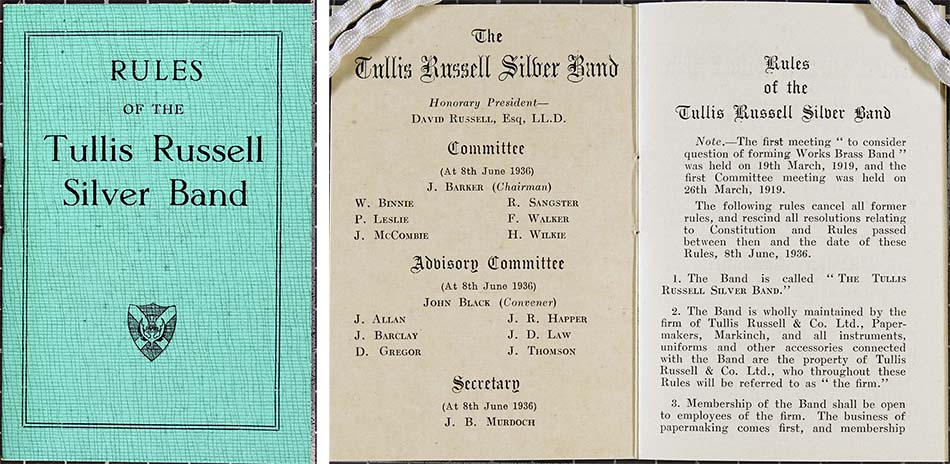
John Haldane was brought on as conductor, and quickly brought the band to fame, with their first contest win in 1925 at the Fourth Section Championship Contest in Dalkeith. They continued to compete in the top rank of Scottish bands throughout his 27 year tenure.
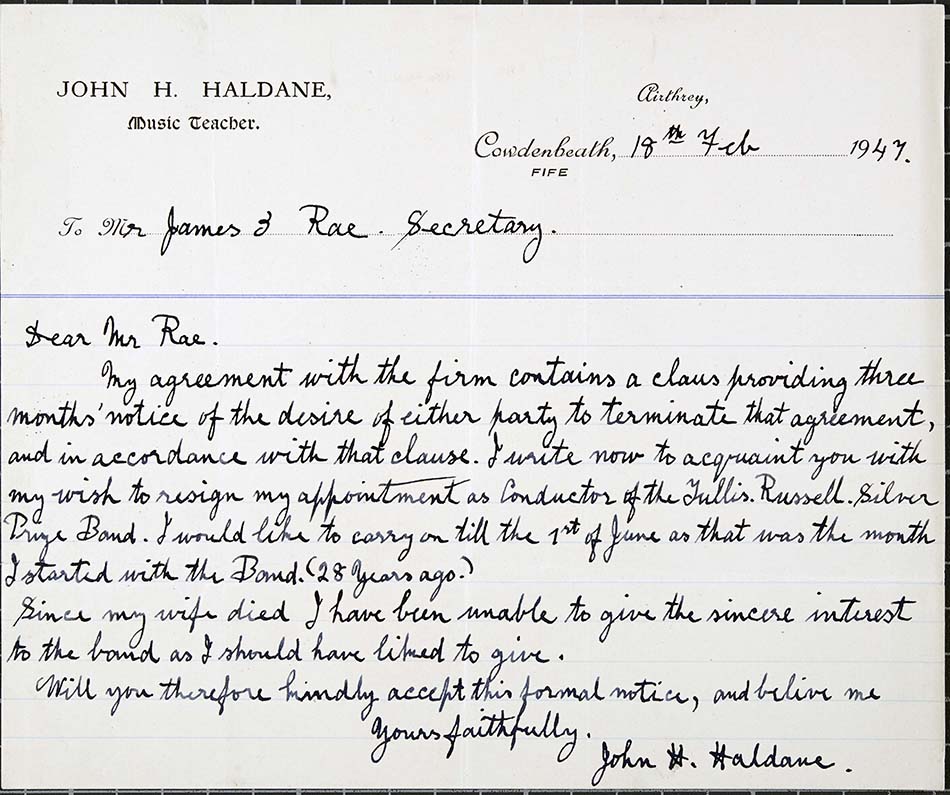
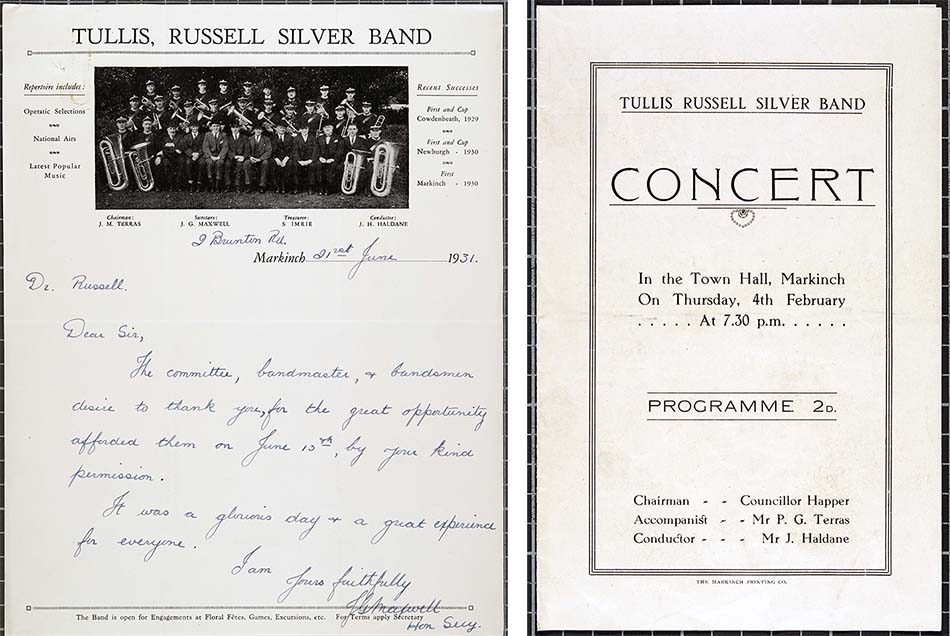
Throughout its history, the Band experienced both rough patches and glory days, but has always been marked by enthusiasm and a quest for improvement. During World War II, the Band, somewhat depleted but still enthusiastic, played for charity at concerts, parades, and hospitals.
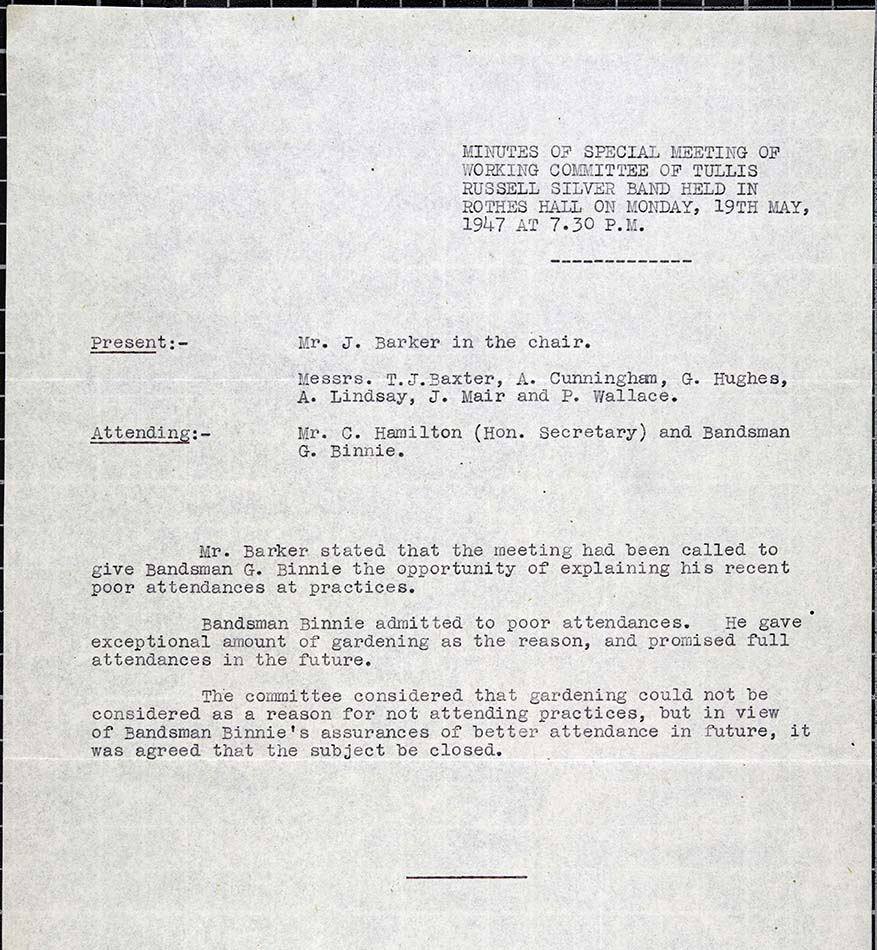
The Band returned to glory under conductor Drake Rimmer who served in the post from 1948 – 1966. This “Golden Age” included a win at the 1952 Scottish Championship, competing at the National Finals at the Royal Albert Hall in 1953 and playing again in 1964. The Band won the Edinburgh hymn tune contest 13 years running, and when the organizers switched to a march contest, the Band won that too.
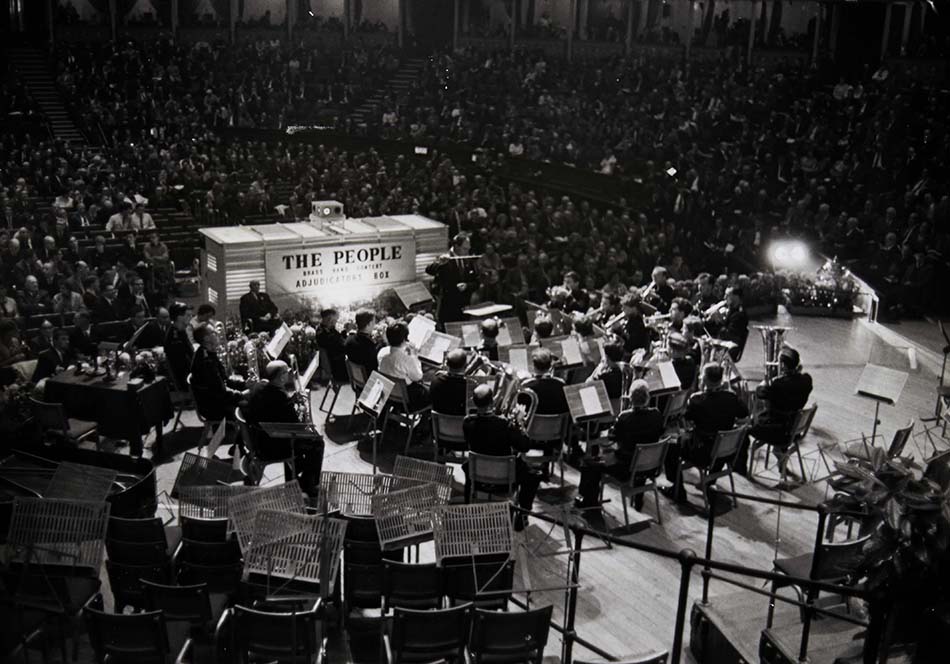
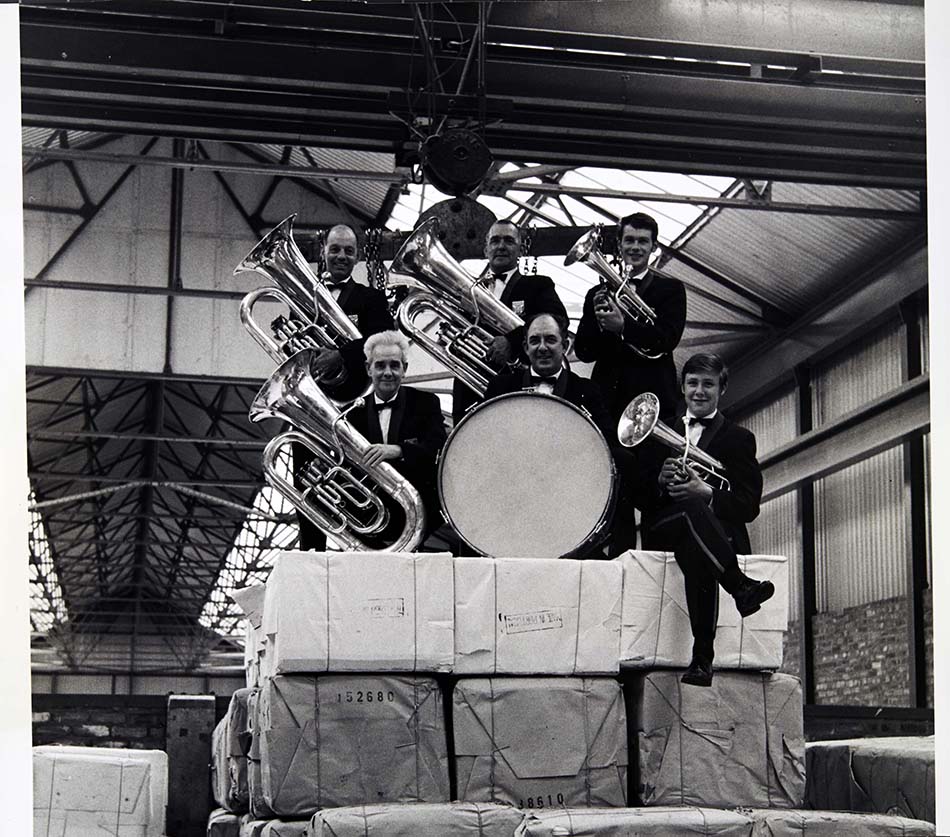
The band recorded an album to celebrate their 50th Anniversary in 1969, a copy of which survives in the archive. The mill manufactured the paper for the sleeve.
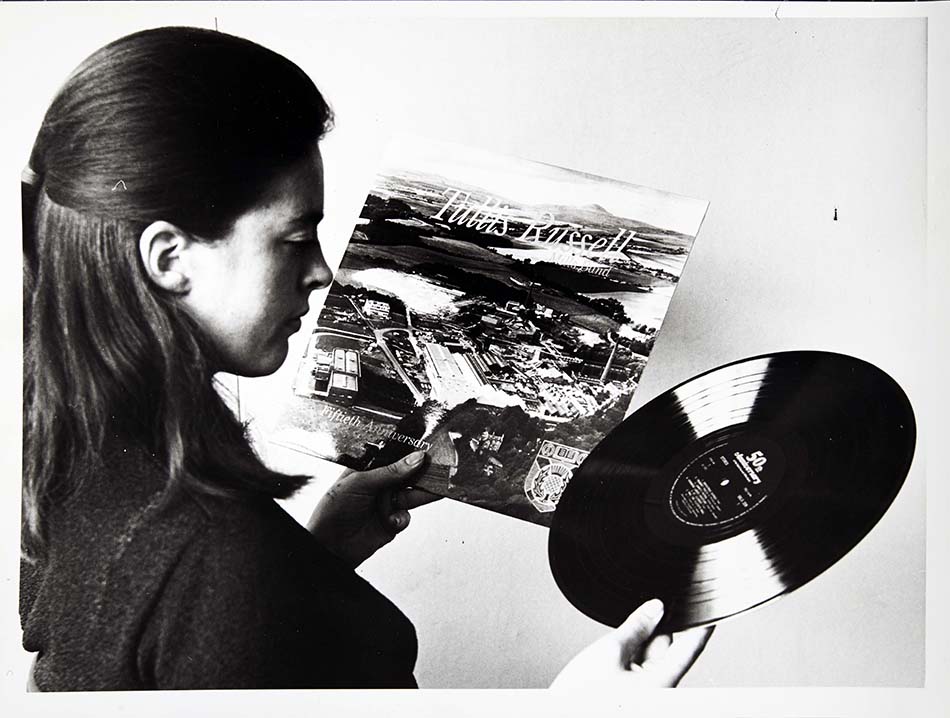
An excerpt from ‘Trumpet Fiesta’ from the Tullis Russell Mills Band 50th Anniversary Album
An excerpt from ‘The Cossack’ from the Tullis Russell Mills Band 50th Anniversary Album
As the older players began to retire, the band went into a bit of a decline, but began to rise again in the early ’80s under the direction of James Millar, bringing in a 3rd Section win at the Scottish Championships and a return to the Albert Hall. In 1985, they travelled to Böblingen Germany, the twin town of Glenrothes. In 1988, they travelled to the Isle of Man for a prestigious entertainment contest.
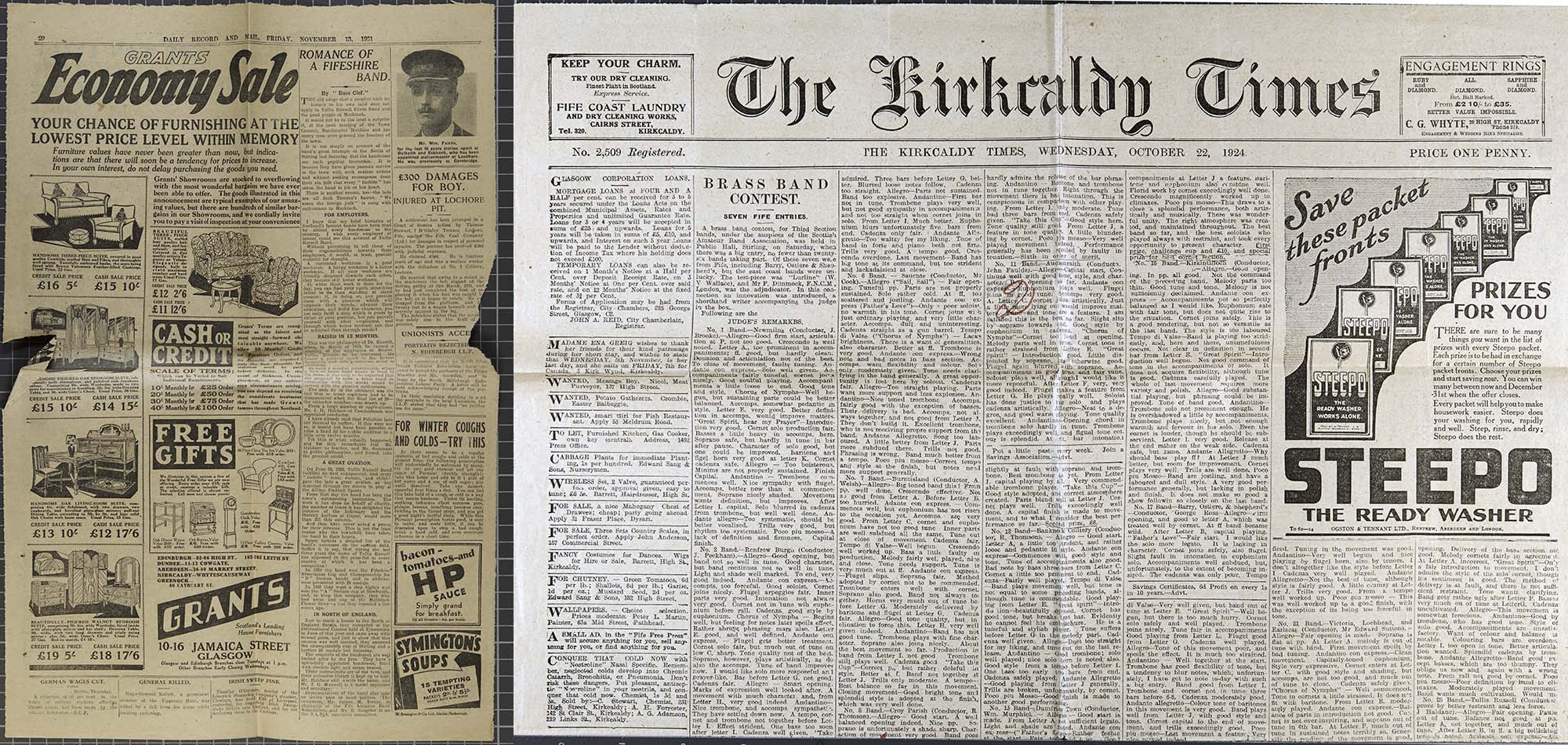
In 1988, they travelled to the Isle of Man for a prestigious entertainment contest. The applause for their performance went on so long that the band’s score was reduced as a punishment for running over their allotted time, demoting them from first to second place – an injustice that saw the band making national headlines.
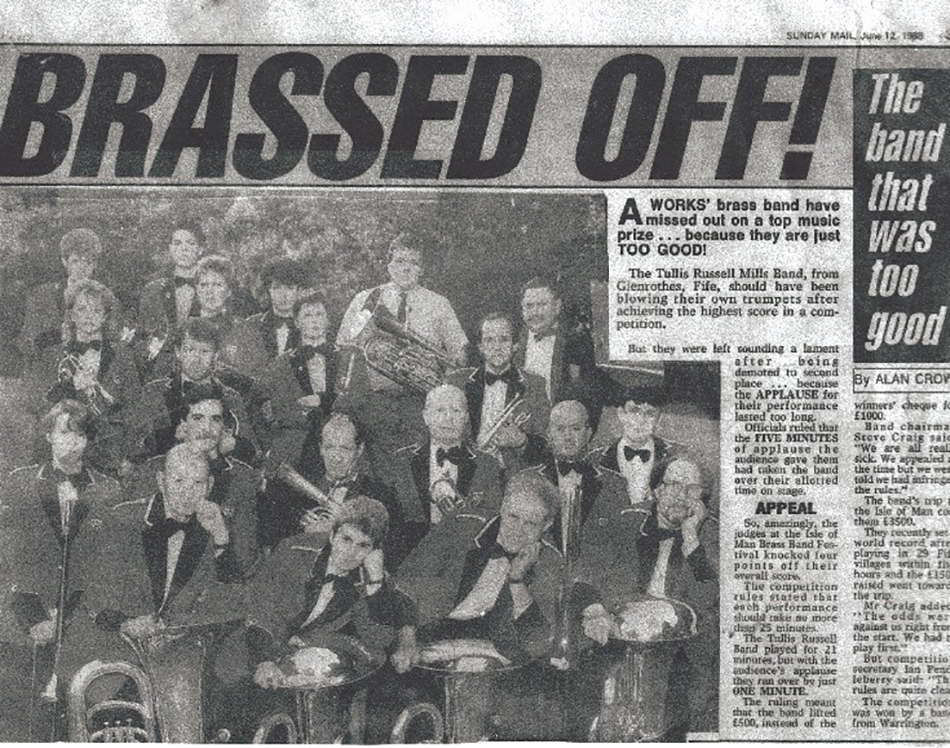
March 2014 found Tullis Russell making history, being the first in the UK to have two bands crowned as Regional Champions, with both the Band and Intermediate winning their sections, and qualifying not only for the national final later that year, but for the Europeans Championships being held in Perth.
The closing of the Tullis Russell Mill in 2015 was a huge blow, but the Band rallied, and in 2016 won the 1st Section championship at the Scottish, which brought the Band back to premier section for the first time in 38 years. Both John Wallace (international trumpet soloist, leading arts educationalist, composer, conductor, former principal of the Royal Conservatoire of Scotland and DMus of the University) and John Miller (former orchestral player and brass teacher, Professor at the Royal Northern College of Music) returned to their roots when The Wallace Collection took over the musical direction of the Band in 2017.
The Band continues to take on exciting projects, and in the summer of 2017, the Band, alongside The Wallace Collection, presented the world premiere of John Wallace’s new semi-staged work De Profundis as the large project for the East Neuk Festival. They have several special concerts as well as new arrangements and pieces in the works for the upcoming year and look forward to new adventures in their second century. These include a recently finished recording for their Centenary CD The Unfinished Symphony which will be released at an upcoming performance at the St Andrews Fringe of Gold Festival.
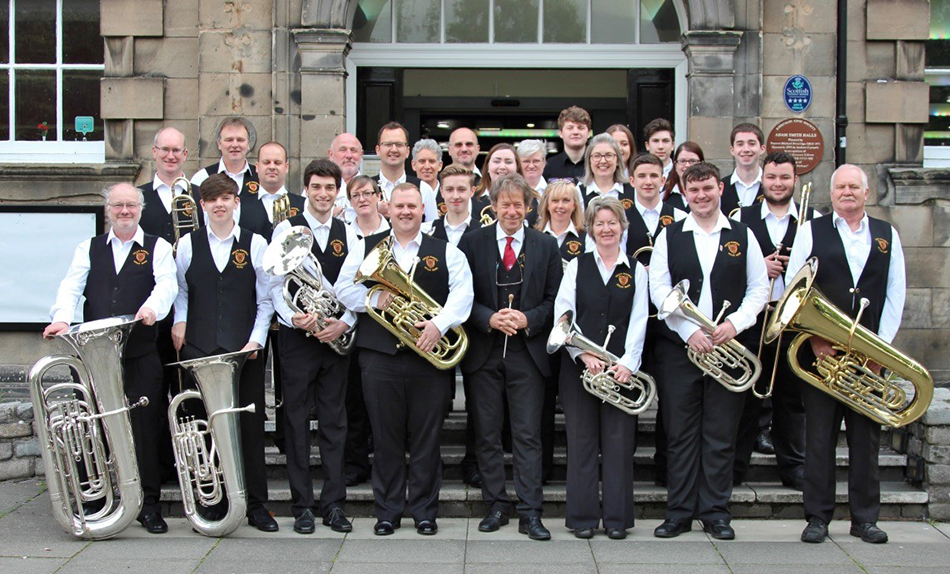
Sean Rippington
Digital Archives Officer
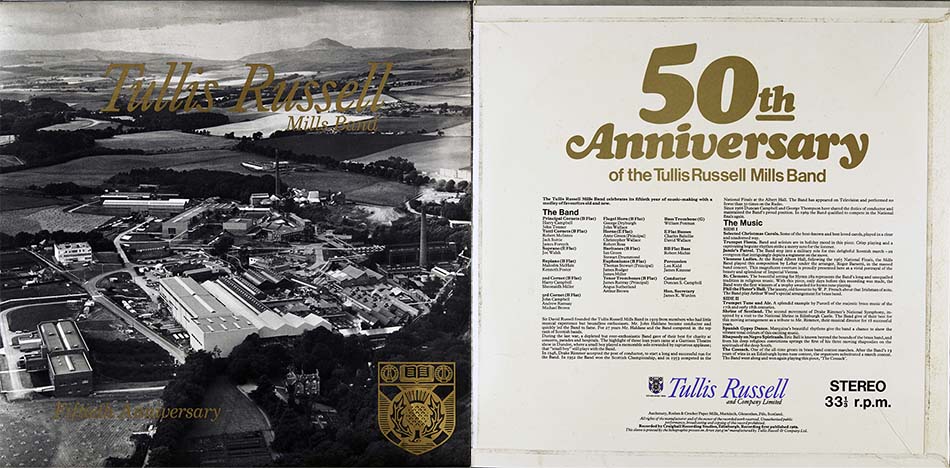
How fantastic to read this article and discover that the Tullis Russell Mills band is doing so well and continues to perform in Fife. Those of us who, as past employees, continue to mourn the passing of this great company are lifted to learn that the legacy of the Russell family lives on.
It's hardly surprising that poor 'Bandsman Binnie' did not always turn up for band practice. He had been, for decades Sir David and Lady Russell's personal chauffeur and was at their constant beck and call.
Great to see, read and listen to the 100th anniversary of the Tullis Russell Brass Band. My grandfather Sir David Russell and father Dr David Russell would be very proud and grateful that the band is still going, even if Tullis Russell is no longer present at Markinch.
Thanks for all your comments. We are so glad to hear you enjoyed the blog post.
Brilliant - that's my Grandfather, Charles Balsillie, on the bales with his Eb bass!
Hi Fiona, that's amazing. Thank you for telling us!
[…] leisure and enjoyment of staff in 1926 and encouraging numerous clubs and societies, such as the Tullis Russell Band. The film narrator acknowledges that one of the most important ‘ingredients’ in paper-making is […]
I met Dr David Russell many times in my position as Chairman of the Tullis Russell Mills Band, a very kind and thoughtful man who always looked favorably on the band. I have been the bands unofficial historian for the last 35 years and have lots more information which would give more detail on the last 100 years and will contact Sean after this lock down has ended.
Hi Steven, we would love to hear more from you about the band. Please do get in touch with us at [email protected].
What was the name of the bandsman who was head hunted around the 1950s by one of the top English bands (Fodens I think). At one time he was a Sunday School teacher when he would have been a teenager.. Harry Smith
Great collection and read. Thank you.
The 1969 L.P. turned up in a charity shop in Aberdeen in 2020. I bought it. I will transfer it to c.d.. I,d imagine it is fairly rare now.